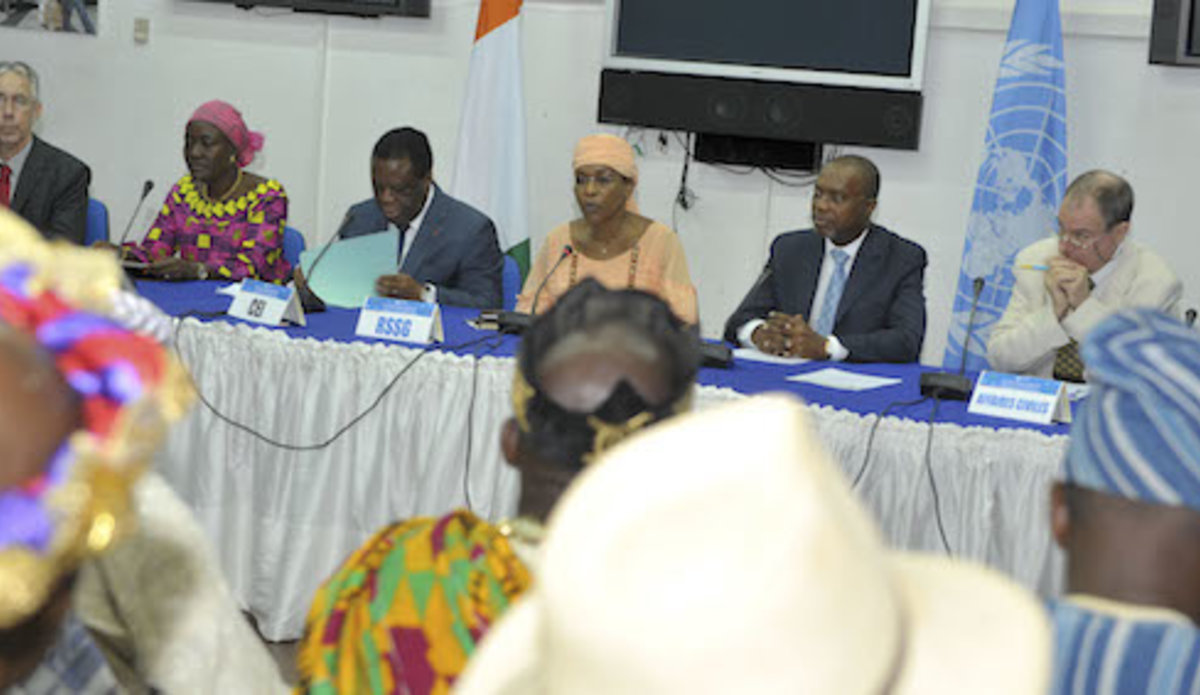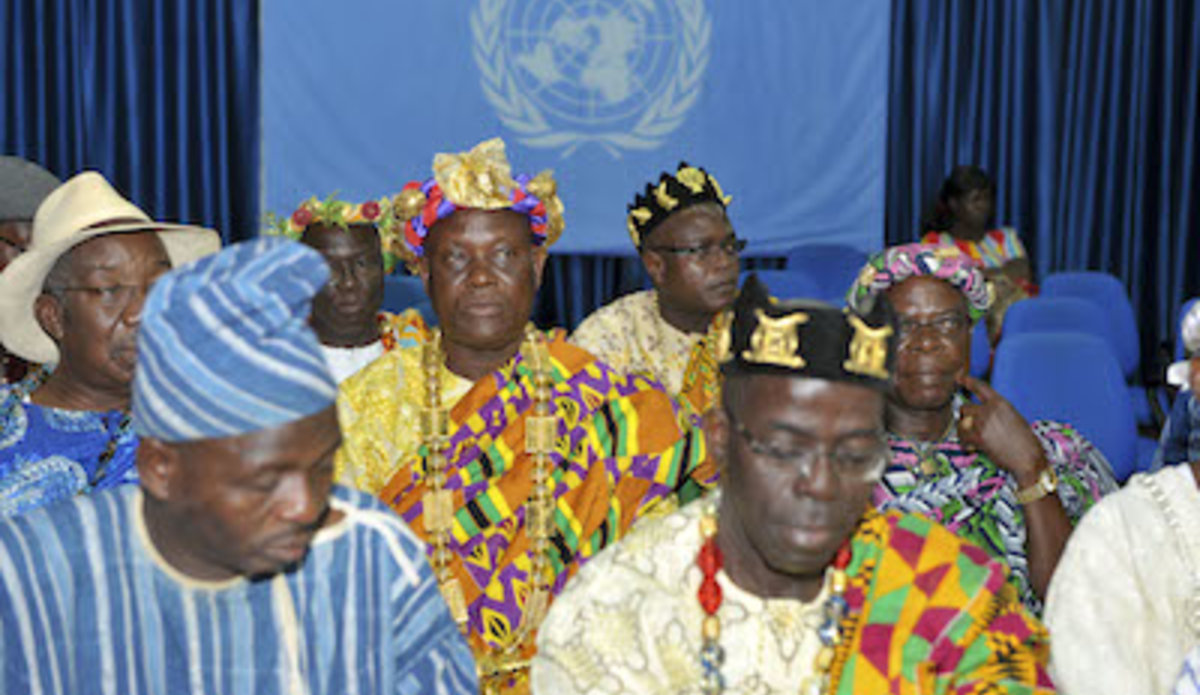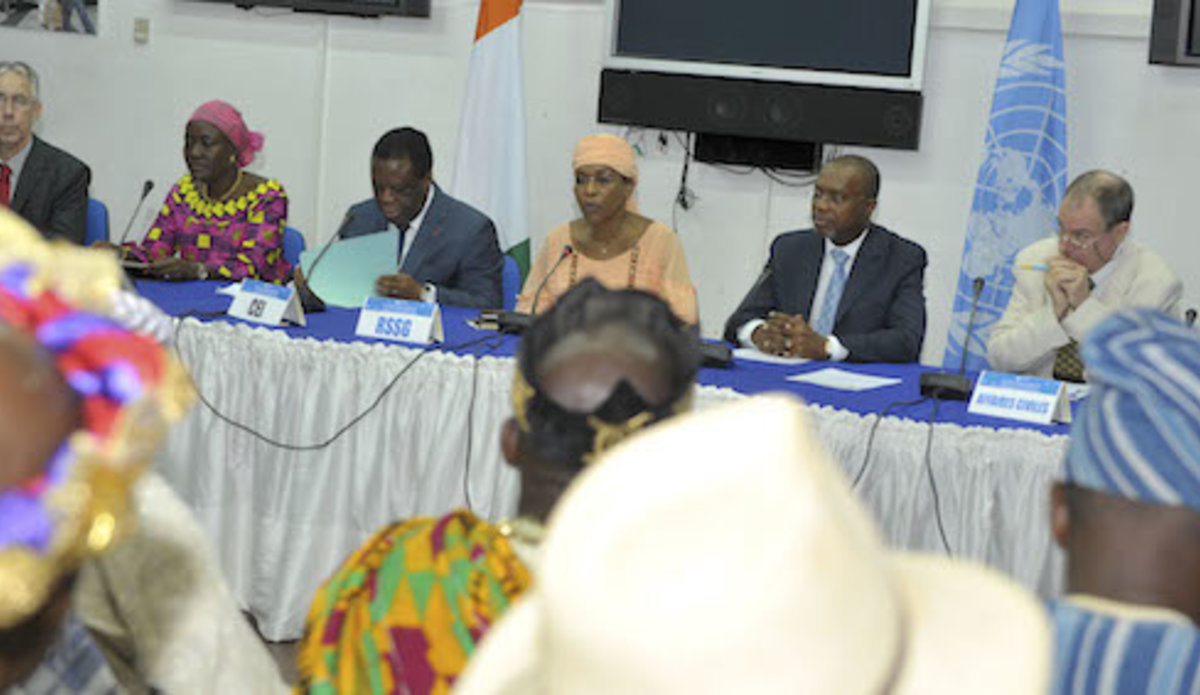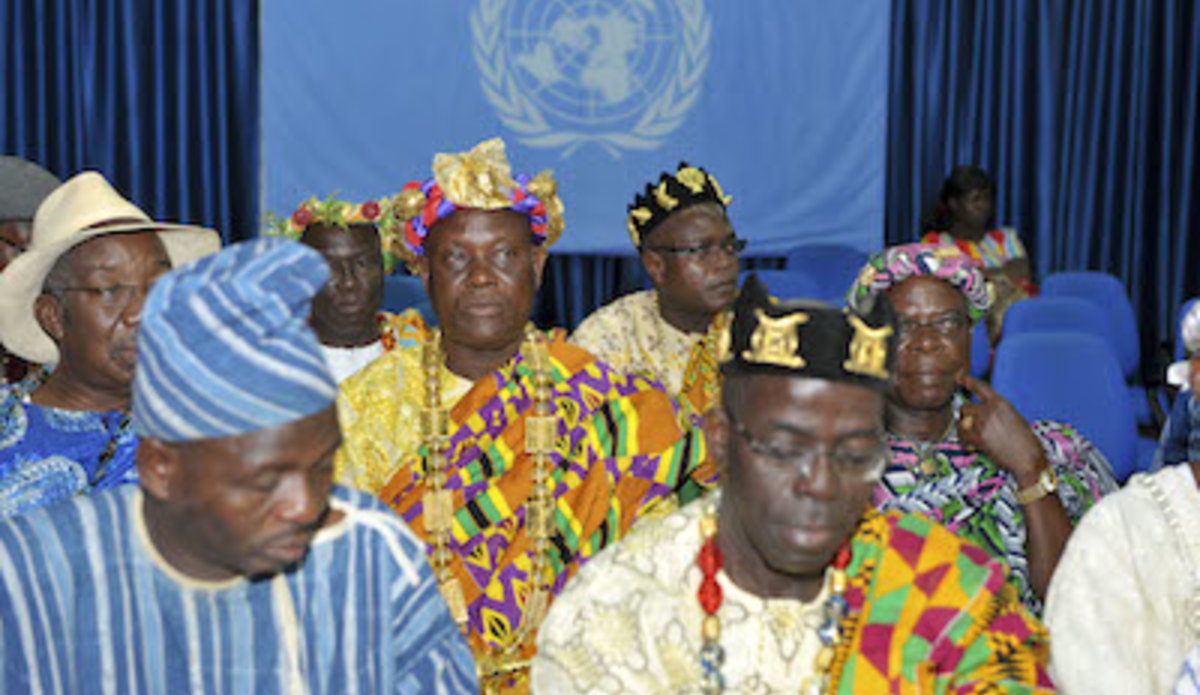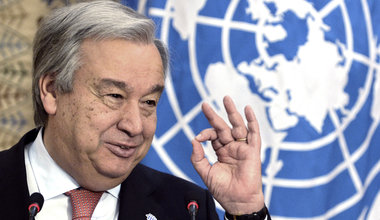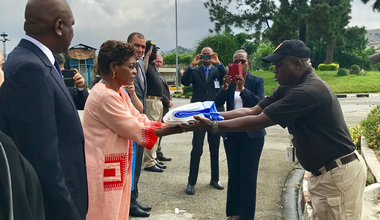The fifth sectorial meeting of the United Nations exchange platform: the Special Representative asks traditional leaders to participate in youth and women civic education and help them take part in the electoral process
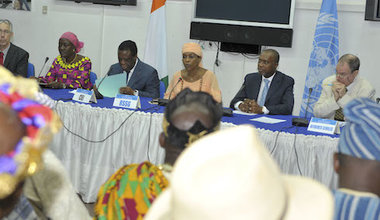
The Special Representative of the Secretary-General of the United Nations for Côte d'Ivoire and Head of the United Nations Operation in Côte d'Ivoire (UNOCI), Aichatou Mindaoudou, participated, on Wednesday 1 July 2015 at the UN Mission headquarters in Abidjan, in the 5th sectorial meeting of the UN discussions Platform on the elections.
During this meeting devoted to the traditional chiefs, the Special Representative urged the kings and traditional leaders at that platform to more than ever play their role so that the democratic game may be peaceful and meet international requirements.
She further asked them to invite their population to develop a civic behavior. According to her, in fact, the next historic rendezvous of Cote d'Ivoire through the October 2015 elections should be an opportunity to make peace with the support of traditional chiefs.
Recalling the role of traditional leaders in society, Aichatou Mindaoudou said that they were the administration auxiliaries. Their role of mediators, she said, was the core value to promote social reconciliation. For her, chiefs and kings were the solid foundation on which social cohesion should stand. "As leaders, you need to be effective in the prevention of conflicts," she said.
Speaking of the upcoming election, Ms. Mindaoudou said that in Africa, elections were a period full of emotive behaviors. During that period social peace was put to the test, particularly because of incendiary speeches by some politicians in need of voters. Yet, she said, elections were a normal feature of democracy.
The very essence of democracy was nothing but various elections. Therefore elections, she said, should not be an opportunity to put social cohesion in jeopardy. Consequently she called on traditional leaders as facilitators to create a peaceful environment for a peaceful election in October 2015.
Ms. Mindaoudou further indicated that the UN platform was established to create a dynamic framework for dialogue on the electoral process, through the commitment of civil society, youth, women and political parties. The objective of the platform was to promote a peaceful environment for the upcoming elections in Côte d'Ivoire.

"{Your participation at this platform will expand the scope of discussions. The platform will be a place for an extensive sharing of information on the electoral process. We hope that the platform will be the perfect setting.
To this end, it is important for you to work together with the Independent Electoral Commission. I would be pleased if we could discuss how traditional leaders could contribute to women and youth civic education and help them participate in the electoral process,}" she said.
For his part, the President of the Independent Electoral Commission (IEC), Youssouf Bakayoko, present at the meeting, invited traditional leaders to encourage the population to participate in elections in a peaceful manner.
After exchanges, traditional leaders pledged to make every effort with the IEC to have massive participation of the population in the coming elections. Additionally they made several recommendations, among which, the drafting of a good conduct charter for political parties; the strengthening of the partnership between the IEC and traditional chiefs and the protection of traditional chiefs in the exercise of their functions.
The platform has been set up in collaboration with the IEC, with the participation of the Constitutional Council and the Human Rights National Commission (CNDH), the National Social Cohesion Program (NSCP) and several international organizations, such as the National Democratic Institute (NDI), International Foundation for Electoral System, Search for Common Ground (SFCG) and the United Nations system agencies.
The first four sectoral meetings were attended by women, young people representatives, political parties and civil society members.
 UN
UN United Nations Peacekeeping
United Nations Peacekeeping
